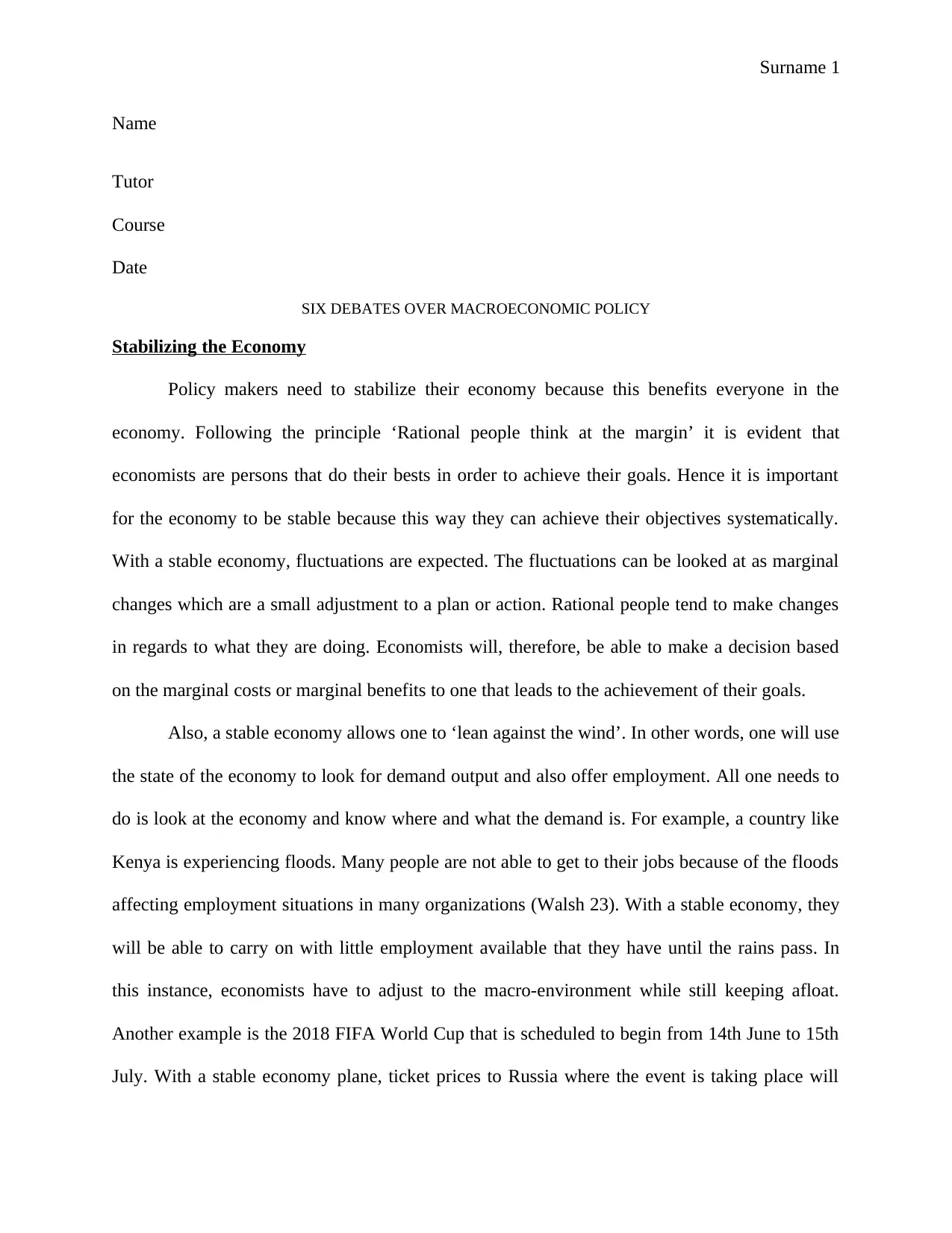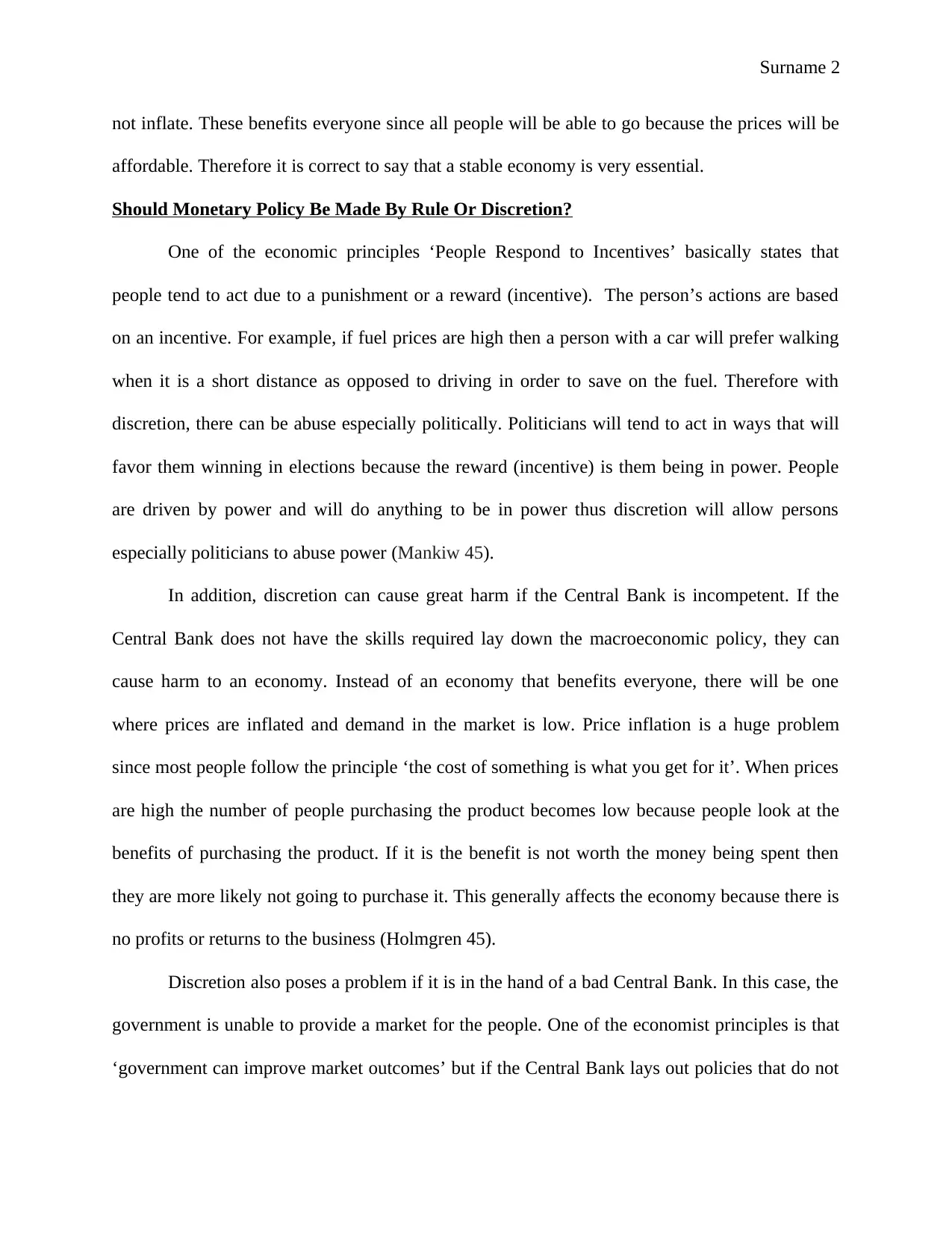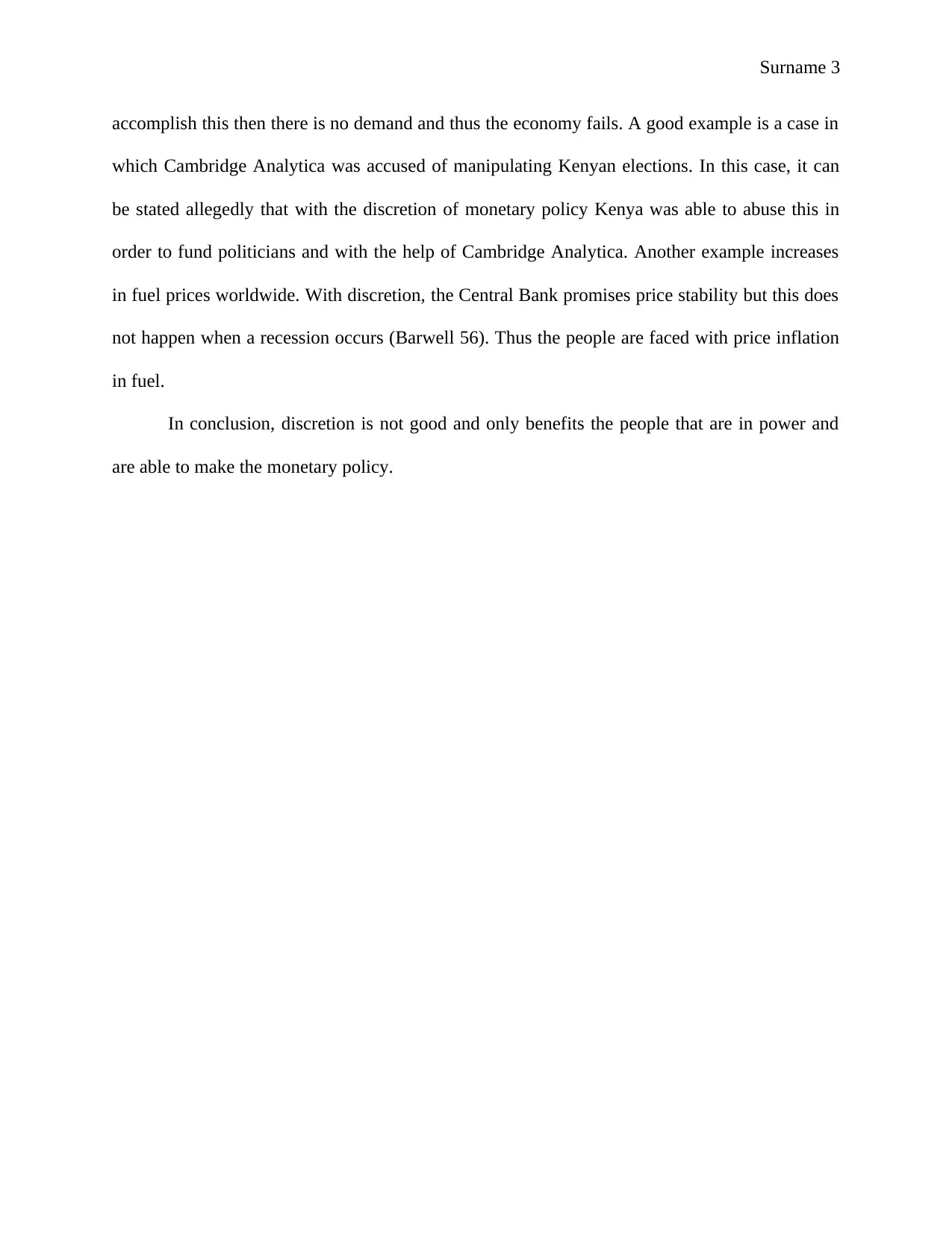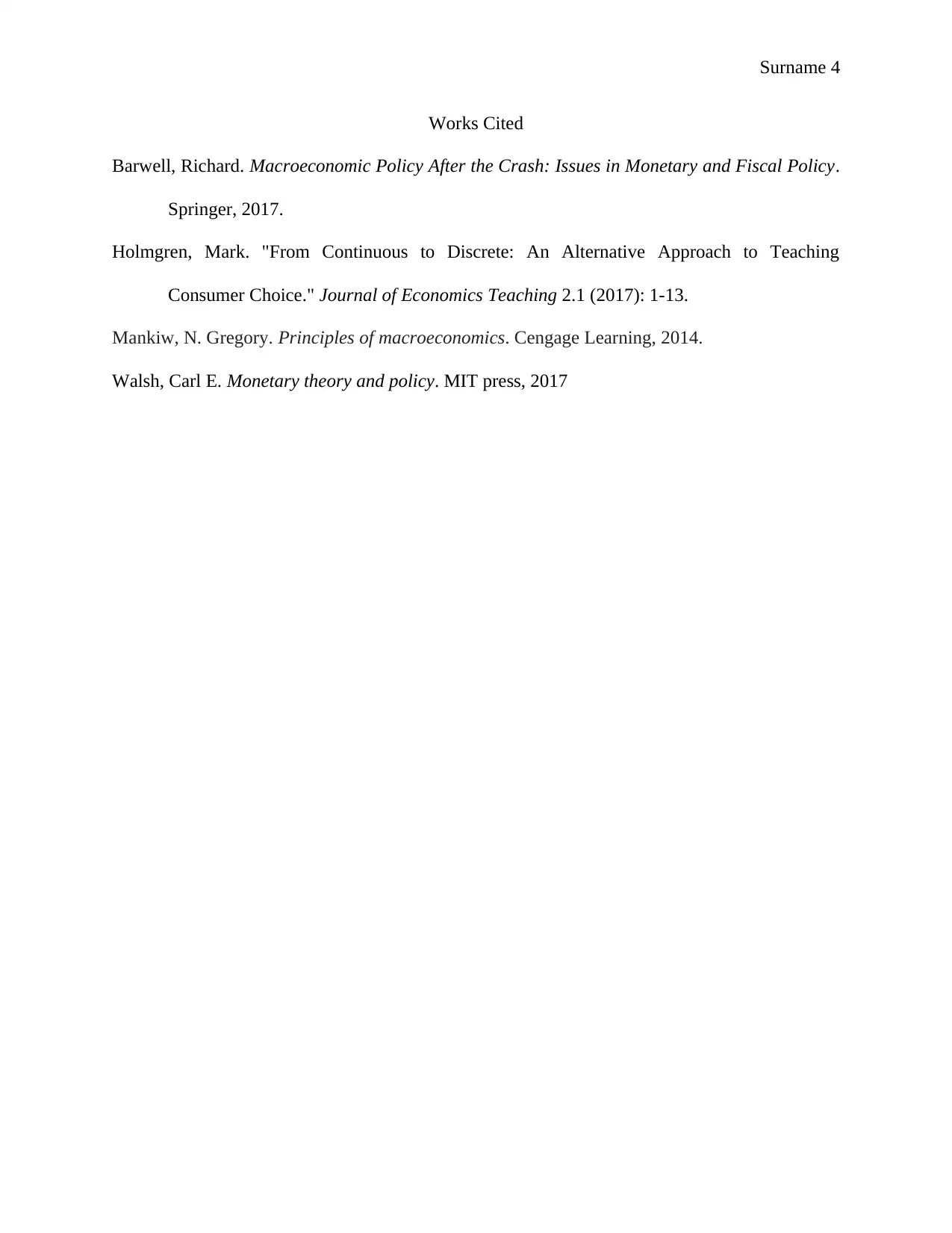Analyzing Six Key Debates in Macroeconomic Policy (ECON 101)
VerifiedAdded on 2021/05/30
|4
|929
|272
Essay
AI Summary
This essay delves into six critical debates within macroeconomic policy. It begins by emphasizing the importance of stabilizing the economy, arguing that it benefits everyone by allowing rational decision-making and adapting to marginal changes and external factors. The essay then explores the debate over monetary policy, contrasting the merits of rules-based versus discretionary approaches, and the potential for abuse of discretion, especially by politicians or incompetent central banks, highlighting potential negative impacts on the economy, such as inflation and market failures. The essay uses examples like the Kenyan economy and the 2018 FIFA World Cup to illustrate these points. The conclusion favors rules-based monetary policy due to the potential for abuse inherent in discretionary approaches. The essay also references several academic sources to support its arguments.
1 out of 4





![[object Object]](/_next/static/media/star-bottom.7253800d.svg)